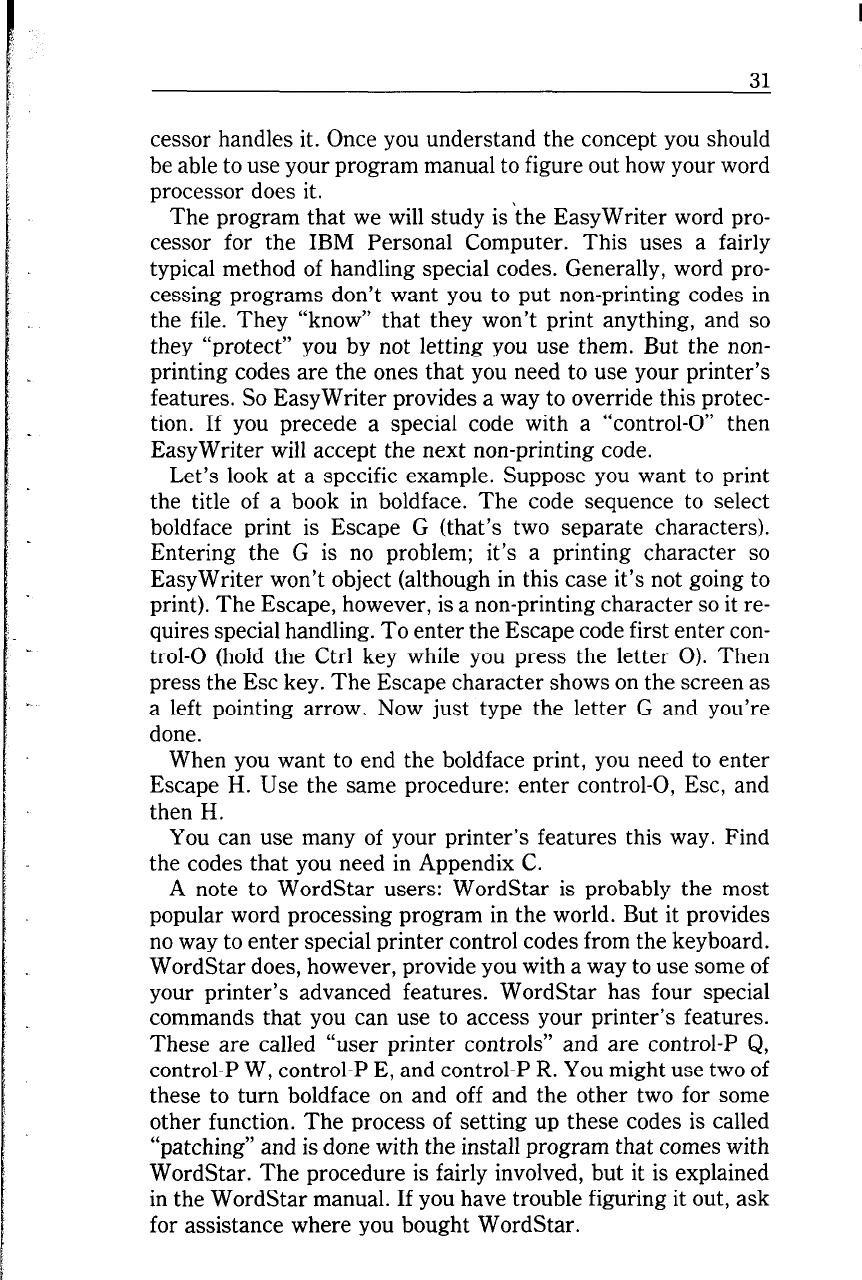
cessor handles it. Once you understand the concept you should
be able to use your program manual to figure out how your word
processor does it.
The program that we will study is‘the EasyWriter word pro-
cessor for the IBM Personal Computer. This uses a fairly
typical method of handling special codes. Generally, word pro-
cessing programs don’t want you to put non-printing codes in
the file. They “know” that they won’t print anything, and so
they “protect” you by not letting you use them. But the non-
printing codes are the ones that you need to use your printer’s
features. So EasyWriter provides a way to override this protec-
tion. If you precede a special code with a “control-O” then
EasyWriter will accept the next non-printing code.
Let’s look at a specific example. Suppose you want to print
the title of a book in boldface. The code sequence to select
boldface print is Escape G (that’s two separate characters).
Entering the G is no problem; it’s a printing character so
EasyWriter won’t object (although in this case it’s not going to
print). The Escape, however, is a non-printing character so it re-
quires special handling. To enter the Escape code first enter con-
trol-0 (hold the Ctrl key while you press the letter 0). Then
press the Esc key. The Escape character shows on the screen as
a left pointing arrow. Now just type the letter G and you’re
done.
When you want to end the boldface print, you need to enter
Escape H. Use the same procedure: enter control-O, Esc, and
then H.
You can use many of your printer’s features this way. Find
the codes that you need in Appendix C.
A note to WordStar users: WordStar is probably the most
popular word processing program in the world. But it provides
no way to enter special printer control codes from the keyboard.
WordStar does, however, provide you with a way to use some of
your printer’s advanced features. WordStar has four special
commands that you can use to access your printer’s features.
These are called “user printer controls” and are control-P Q,
control-P W, control-P E, and control-P R. You might use two of
these to turn boldface on and off and the other two for some
other function. The process of setting up these codes is called
“patching” and is done with the install program that comes with
WordStar. The procedure is fairly involved, but it is explained
in the WordStar manual. If you have trouble figuring it out, ask
for assistance where you bought WordStar.


















